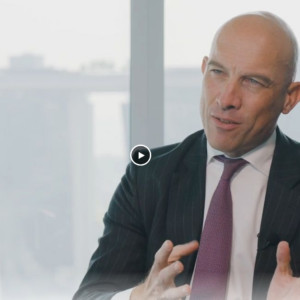
Private equity was once seen as the domain of aggressive raiders, but now has a cloak of respectability with private banks recommending clients boost allocations. They should do so with their eyes wide open.
Back in the late 1980s, private equity pioneers such as Henry Kravis, the story of whose $25bn leveraged buyout of RJR Nabisco was so powerfully narrated in the classic business volume Barbarians at the Gate, were seen as aggressive raiders.
Similarly, when Australian media tycoon Rupert Murdoch’s News Corporation offered to buy out the Bancroft family from its ownership of Dow Jones in 2007 for $5bn, opinion was split on whether he was a “predatory genius” or desperate “asset stripper”.
New breed
Despite the hardscrabble realism of our current geopolitical climate, featuring high stakes competition between rival powers for military, technological and scientific supremacy, today’s ‘Masters of the Universe’ are generally perceived in a much more benign manner than the tough-talking tycoons of yesteryear.
“In the old days, these guys would tell you – in no uncertain terms – that after the transaction, they will give you £10m ($14m),” recalls Amin Rajan, head of the Create-Research consultancy which analyses the structure of the financial system and a senior UK Treasury adviser in the 1970s. “They sold private equity deals as cash in the bank.”
Today’s messaging is more subtle, despite rising book values, transaction costs and higher status of the bidding firms. “There is now a cloak of respectability replacing the hostility. Nobody raises an eyebrow about the big deals anymore.”
Mr Rajan cites the recent £9.5bn takeover, led by US group Fortress, of UK supermarket chain WM Morrison. There was a time when American buyers of British crown jewels were seen as immoral predators. These days they have rebranded as friendly adoptive parents. Even London’s Ultra Electronics, a potentially national strategic operation with interests in maritime matters, intelligence and forensic technology, appeared to favour the provisional £2.6bn takeover bid from US firm Cobham, backed by private equity specialists Advent.
Welcome aboard
Though there is concern about defence technology falling into the “wrong hands” and whispers about “government probes”, the newer, friendlier version of the US ‘Barbarians’ of yore, appear to have cleaned up their acts and are receiving warmer welcomes from shareholders.
Even traditional asset managers are welcoming the wave, with Jupiter boss Andrew Formica claiming the buyout surge was evidence of the “compelling” value of post-Brexit equity assets.
Of course there have been spectacular failures too. The much-hyped, loss-making flexible working concept touted by WeWork, brainchild of Israeli hipster Adam Neumann, defined the post-GFC start-up culture, with its pool tables and vegan food outlets, attracting $10bn from a variety of high-profile backers.
There is little doubt that these huge deals are joining the mainstream of the financial world, proving attractive to both institutions and private banking clients.
Private assets really entered the fray in 2011, when a mass downgrade of the best-regarded bonds left institutions scratching around for fixed income substitutes, able to generate safe and steady yields. Hedge funds had already fallen in and out of favour, after being largely discredited during the global financial crisis. So investors have gradually become accustomed to this “crossover” asset, offering equity-style returns with the income-generating properties of bonds.
Flavour of the month
Private banks have recently been screaming from the rooftops for their clients to raise their allocations, even though many have yet to prove their abilities in alternatives fund selection and due dillgence. They are tying the opportunities up in the ‘de rigueur’ environmental, social and governance (ESG) wrapping paper, making them even more attractive to the socially-conscious next generations. Many are calling for a 15 per cent allocation to alternatives, when today’s reality is closer to 5 per cent.
Moreover, there is a cachet related to the top-rated private equity houses, the likes of Blackstone, Carlyle and KKR, the latter founded by the legendary Mr Kravis and colleagues. They are becoming so popular that investors are prepared to queue for their services, further adding to their mystique and brand resonance.
Does this remind PWM readers of anything? Many of you will remember the stampede to hedge funds at the turn of the millennium, with several banks including Swiss-owned family players Syz and UBP eventually suffering huge outflows due to initial over-exuberance.
The Swiss are now leading the private equity investment trend. The presentation is of course slightly different. Private equity investors are expected to commit their funds for five to seven years, whereas hedge funds offered at least an illusion of regular liquidity windows. Exiting private assets through the secondary market is possible, but would lead to a horrific-looking ‘haircut’ of up to 50 per cent.
What we are now seeing is ‘retailisation’ of these assets. Contracts will be fractionalised, making them available to a broader range of investors. The exclusive ‘club deal’ which has attracted so many private clients and family office followers, will increasingly become more democratic.
Déjà vu?
Should this trend be ringing alarm bells across the financial world? After all, readers will remember the dotcom bubble, the sub-prime disaster and mass redemptions from real estate funds, all within fairly recent collective investing memory.
We have also seen many previous Masters of the Universe – including the inventor of ‘junk bonds’ – end up on the wrong side of legal or regulatory actions.
Excessive demand-driven pressure can lead to a crisis, as all students of financial history can testify. But there is also the changing profile of agency, in addition to a fast-evolving financial system, for us to monitor. Now that the latest generation of ‘Barbarians’ – and their collaborators – have smiles on their faces and are inviting us in for coffee, we have to keep an even closer eye on them.



